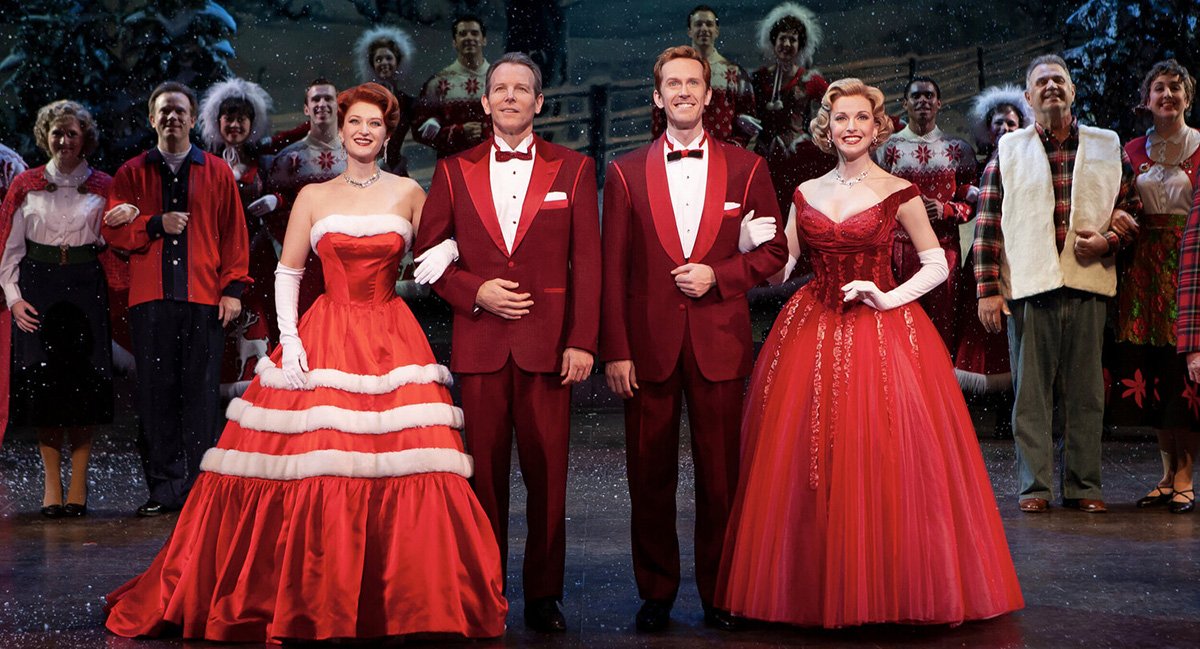
David Ives, librettist of Irving Berlin’s White Christmas, recalls an instructive breakthrough during rehearsals for the musical’s premiere production.
…
Walter Bobbie, who so brilliantly directed (I’d almost say who created) Irving Berlin’s White Christmas, gave a simple, crucial bit of direction to two of the show’s leads one day.
It was fall of 2004. We were rehearsing the show’s premiere production, slated to go up in San Francisco’s Curran Theatre. This was early days of rehearsal, in a New York hall that looked out over 42nd Street’s gaudy chaos toward Times Square. That morning, Brian d’Arcy James and Jeffry Denman were working on the scene where Bob and Phil, former army buddies who’ve become stars, decide to put on a show that will help their friend the General keep his Vermont inn going.
For some reason, the scene was going miserably. No matter how much Brian and Jeffry – wonderful performers both – went back and re-attacked it, some necessary piece was missing. I wondered if I should simply rewrite the scene from scratch.
Then Walter stepped in for a word with the two actors.
He said to them, “I want to remind you of one thing: This is a pre-neurotic, pre-Sondheim musical we’re doing. The year is 1954. Bob and Phil are not interested in their feelings, or showing their feelings, or showing what sensitive men they are. They’re men of their time. They don’t want to be sensitive. They want to be decent. They want to help their old army buddy – the same way they’d help each other out of a jam, without thinking. Forget about Bob and Phil. The scene isn’t about them, it’s about the General. Now let’s try it again.”
You could palpably feel a sudden lightening of mood in the whole room, from the two actors and from everyone observing in the cast. It was the lightening that comes from revelation. Then, lo and behold, when Brian and Jeffry launched back in the scene was utterly changed. It was free. It was uncomplicated. It was joyous. And never again did a scene get stuck that way, because everyone in the room knew that Walter had gone to the heart of White Christmas. From that moment on, the show began to glow.
You see, despite its apparent innocence, White Christmas is a show that’s actually about something. Call it community. Call it the ties that bind. In the army, in show business, in running an inn together, in friendship, in sisterhood, in “the spirit of Christmas,” the characters of White Christmas realize their connections and responsibilities to everyone around them. It’s why Betty feels so morally betrayed when she finds out (wrongly) that Bob is less than he seemed. It’s why generosity runs through the veins of these characters, who live in a world that is perhaps quite alien to us today: a world in which people are for others, not for themselves.
If I had any advice to give performers, directors, designers launching into this show it would be this: outward simplicity, and inner generosity. Outward simplicity means not hammering jokes in the contemporary sitcom smirking/mugging manner but letting laugh-lines land as they will, with all the modest ease of 1954. The humor has to come from character, not from knowingness. Inner generosity means making your every acting objective about the other person. Speaking and listening are more important than trying to be funny here because it’s humanity that’s on offer, not snappy lines.
In short, this show can’t be played as a musical of today. To work, it has to remain true both outwardly and inwardly to the era the movie it’s based on was written in. That’s one of the reasons people want to see White Christmas: because they want to inhabit that more innocent world of 1954 for a couple of hours. A world of uncomplicated friendships and simple, open feelings. It’s the world of everyone’s inner Christmas, where Scrooges are transformed and true love comes wrapped as a gift and snow falls when it’s supposed to.
Simplicity. Generosity. Decency. You can’t go wrong.

College Theatre: Picks for Your 2025/26 Season

Unlikely Friendships in Plays

